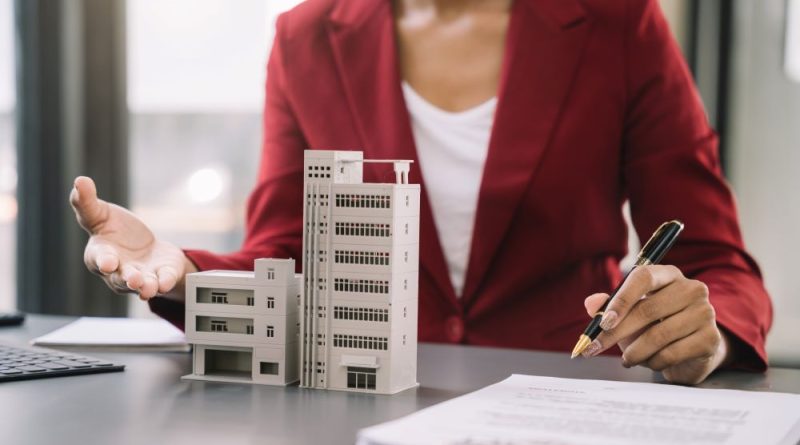Key Essentials to Secure and Maintain Your New Commercial Property
Investing in commercial properties is a significant achievement, but ensuring they remain secure and well-maintained is just as important. A well-protected property not only prevents financial losses but also helps maintain its value over time. From security systems to routine inspections, here are key essentials to consider for safeguarding your investment.
Implement a Comprehensive Security System
A strong security system is the foundation of a well-protected commercial property. Installing surveillance cameras, alarm systems, and motion detectors can help deter criminal activity and provide evidence if an incident occurs. Access control systems, such as key card entry or biometric scanners, add an extra layer of protection by restricting unauthorized access.
Additionally, having well-lit exteriors can discourage trespassers and enhance overall safety. Hiring on-site security personnel or working with a security service can further strengthen your property’s defenses. Regularly updating security protocols and training employees on emergency procedures ensures your system remains effective. With a comprehensive approach, you can minimize risks and create a safer environment for occupants.
Secure Commercial Insurance Coverage
Protecting your investment goes beyond physical security—having the right commercial insurance is crucial. This type of insurance can provide financial coverage in case of property damage, natural disasters, theft, or liability claims. Depending on the nature of your business, you may need policies that cover general liability, property damage, or business interruption. Reviewing your coverage regularly ensures it remains adequate as your property and business needs evolve.
Working with an insurance professional can help you tailor a policy that fits your specific requirements. Keeping detailed records of your property’s condition and any improvements made can also streamline the claims process if needed. Having comprehensive insurance coverage gives you peace of mind, knowing your investment is financially protected.
Conduct Regular Property Inspections and Maintenance
Routine inspections and maintenance help prevent costly repairs and extend the lifespan of your property. Checking for structural issues, plumbing leaks, and electrical concerns can identify small problems before they become major expenses. Scheduling professional inspections for roofing, HVAC systems, and fire safety equipment ensures they remain in good working order. Regular landscaping and exterior maintenance keep the property visually appealing and compliant with local regulations.
Addressing maintenance requests from tenants or occupants promptly improves tenant satisfaction and retention. Establishing a maintenance schedule with reliable contractors can streamline upkeep and reduce unexpected breakdowns. Preventative maintenance not only saves money in the long run but also keeps your property safe and operational.
Ensure Fire and Safety Compliance
Fire safety measures are critical for protecting lives and property. Installing and maintaining fire alarms, sprinkler systems, and extinguishers can significantly reduce the risk of fire-related damages. Conducting routine fire drills and ensuring occupants know evacuation routes can improve emergency response. Compliance with local fire codes and regulations is necessary to avoid fines and potential liability. Regularly testing smoke detectors and emergency lighting ensures they function properly in case of an incident. Training employees or tenants on fire prevention strategies, such as proper storage of flammable materials, further enhances safety.
Partnering with fire safety professionals for inspections and updates can keep your property up to standard. Prioritizing fire safety measures can make a crucial difference in an emergency situation.
Establish a Reliable Tenant and Lease Management System
If your commercial property is leased to tenants, managing leases effectively is essential for long-term success. Clear lease agreements outlining maintenance responsibilities, security measures, and payment terms help prevent disputes. Conducting thorough background checks on potential tenants ensures they are reliable and financially stable. Keeping open lines of communication with tenants allows you to address concerns promptly and maintain a positive landlord-tenant relationship.
Using property management software can streamline rent collection, lease renewals, and maintenance requests. Regularly reviewing market trends and rental rates helps you stay competitive and maximize returns. Ensuring tenants adhere to property rules and security policies helps maintain order and safety. A well-managed leasing system contributes to the overall stability of your investment. For investors overseeing larger residential complexes, the complexity of these tasks often necessitates professional oversight to maintain high occupancy rates and property value. Partnering with an experienced Multi Family Property Management Company can provide the specialized expertise needed to handle day-to-day operations, from rigorous tenant screening to comprehensive financial reporting. These professionals understand the unique challenges of managing high-density housing, ensuring that both the physical assets and the community atmosphere are preserved. By outsourcing these responsibilities, owners can focus on scaling their portfolios while knowing their current assets are in capable hands.
Plan for Emergency Preparedness
Unexpected events such as power outages, natural disasters, or security threats can disrupt business operations. Having a well-documented emergency plan in place ensures that tenants and employees know how to respond. Creating evacuation routes, emergency contact lists, and contingency plans for various scenarios helps minimize chaos during critical situations. Stocking essential emergency supplies, including first-aid kits and backup generators, can provide temporary relief in times of crisis.
Partnering with local emergency response teams and keeping communication lines open with authorities enhances preparedness. Conducting periodic drills familiarizes occupants with procedures and improves response time. Keeping insurance and financial resources in place ensures quicker recovery in case of major damages. Being proactive about emergency preparedness helps protect both property and people in times of crisis.
Maintain Legal and Regulatory Compliance
Owning and managing commercial properties requires adherence to various local laws and regulations. Zoning laws, building codes, and health and safety regulations must be followed to avoid legal complications. Staying informed about property tax requirements and lease laws helps you operate within legal boundaries. If renovations or expansions are planned, obtaining the necessary permits ensures compliance with municipal requirements. Keeping documentation of inspections, permits, and legal agreements in order simplifies property management. Consulting with legal professionals can help navigate complex property laws and reduce liability risks. Ensuring compliance not only protects you legally but also maintains the credibility and value of your property. Proactive legal management keeps your investment secure in the long run.
Key Takeaways
By implementing these key essentials, you can effectively secure and maintain your commercial property for years to come. A well-maintained and secure property not only protects your investment but also ensures a safe and productive environment for tenants and businesses.



